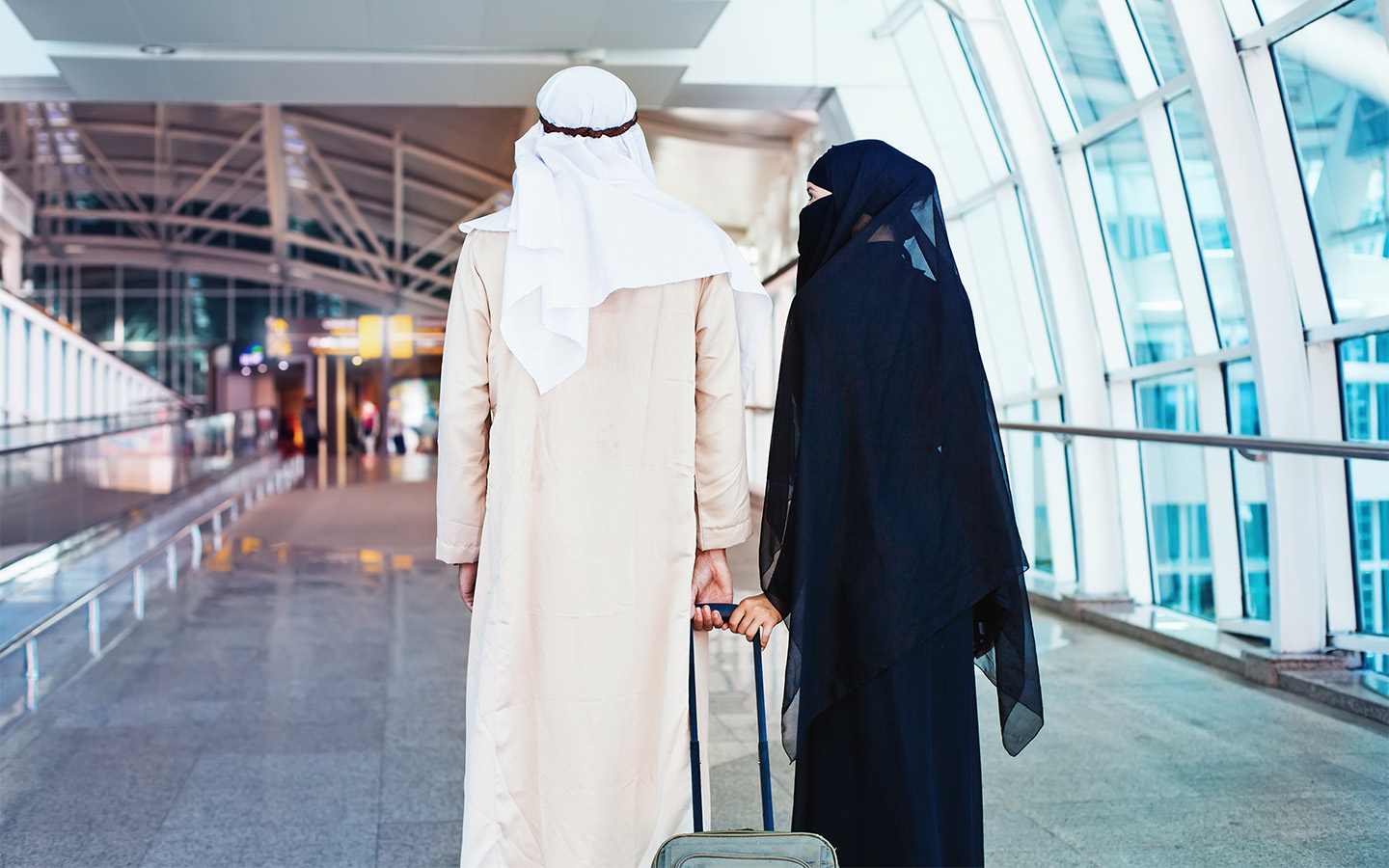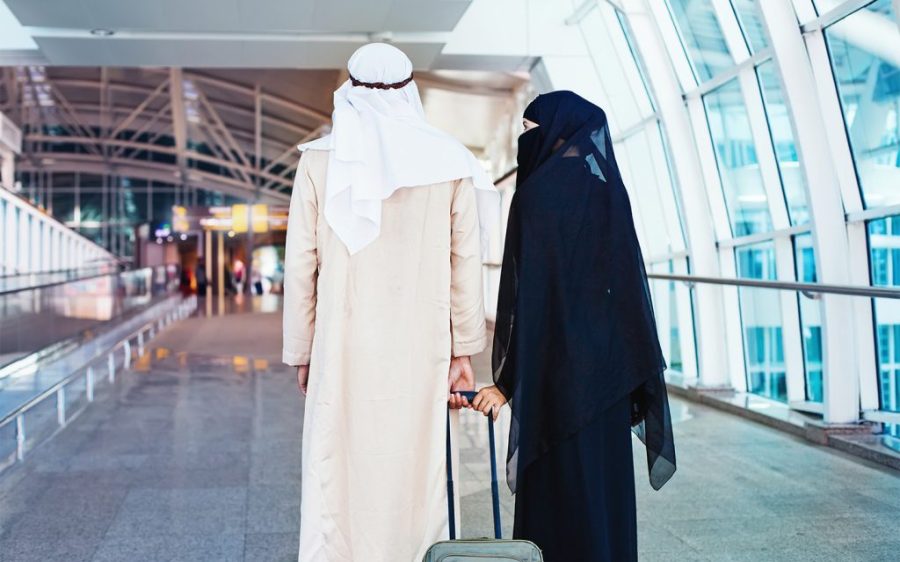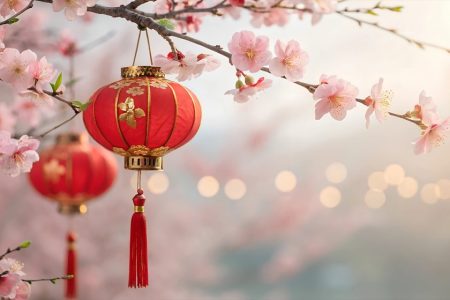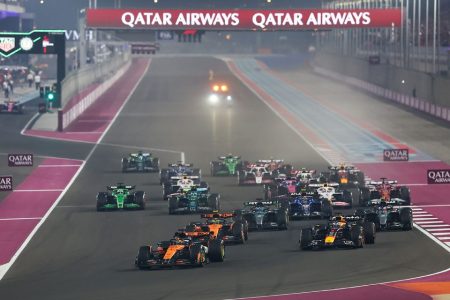Imagine stepping off the ferry in Macao, a city glittering with lights and humming with the promise of adventure. To most visitors, the choices are dizzying: which Michelin-starred restaurant to try, which dazzling show to catch, and which historic site to explore?
But for Ree, a 23-year-old Muslim student from Indonesia pursuing his master’s in Hong Kong, the experience was different. He recently arrived with a question that many travellers have: “Where to eat?” Muslim visitors don’t find the answer to be an easy one.
“When I visited Macao,” Ree says, with evident frustration, “there was only one handbook and one official page listing the halal food available.”
That page, in Macao for Muslim Travellers, published by the Macao Government Tourism Office (MGTO), boldly claims that the city is a “halal food haven.” But while the pamphlet provides a QR code that can be scanned for more listings, it features only seven restaurants. Not all the restaurants are purely halal – some allow for the cooking of non-halal food on site and some even serve alcohol. The guide advises users to “dine at their discretion.”
[See more: Macao is preparing ‘step by step’ for Muslim visitors, tourism chief says]
Unhelpfully, Ree tells Macao News, the guide doesn’t show what attractions are “around the area of those restaurants,” making it difficult to know where to stop for lunch after a morning’s sightseeing. “I didn’t know which one to choose.”
He says Macao is a stark contrast to South Korea, where he also recently holidayed, finding both readily available prayer facilities and halal dining options. The same is true in Hong Kong, Macao’s near neighbour, where Ree lives. His experience highlights a critical challenge for Macao, a city striving to diversify its tourism offerings and welcome a broader range of international visitors, including Muslim travellers.
“Did you know,” Ree says, “that even some KFCs in Hong Kong are halal?”
The challenges faced by Macao in luring Muslim tourists
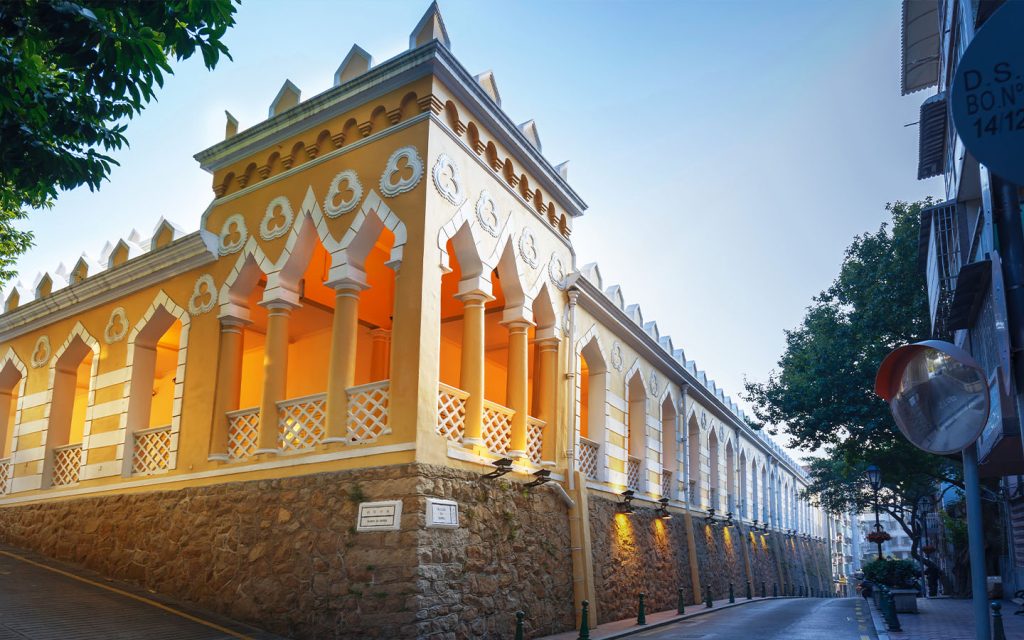
Picture the glitzy, glamorous Cotai Strip at night – that mesmerising boulevard of dazzling lights and awestruck tourists. Opulent resorts vie for their attention, each touting sprawling casinos and lavish lounges. While Asia’s Las Vegas, in all its extravagant glory, may appeal to many, Ree’s experience illustrates why Muslims might think twice about visiting.
Not only does Macao lack many of the dining facilities they need, but its very raison d’etre – gambling – is considered haram, or forbidden, in Islamic belief. This is a reality that Macao is increasingly grappling with as it seeks to expand its tourism market beyond its traditional sources.
True, there are casinos in Muslim majority countries – but many restrict entry to foreigners only, and luring devout Muslims to a city that depends on gambling for nearly 90 percent of government revenue is going to take some tact. According to one Islamic cleric, merely staying in an “integrated resort” – as Macao likes to call its casino-hotels – is sinful.
Sheikh Assim Alhakeem, the prominent Indonesian imam of a mosque in the Saudi city of Jeddah, was asked by an online follower in 2020: “If we go to the casino but not to gamble, just for a vacation … at their resort, is this permissible to go there?” The cleric replied: “Of course not! With all the gambling around you and the prostitution, the music, the liquor etc, aren’t you afraid of Allah’s wrath [falling] upon them and to include you with them?”
[See more: Macao takes part in the Middle East’s biggest travel trade show]
Besides a poor choice of halal dining, and the prevalence of casinos, another barrier preventing Muslim tourists from fully enjoying a tour of the SAR is the lack of sufficient prayer facilities and mosques.
Macao admittedly holds a lesser-known history that may pique the interest of Muslim travellers: Arab and Persian traders were known to have visited the territory during the Ming dynasty, contributing to trade and cultural exchange. The Moorish Barracks, a UNESCO World Heritage Site, stands as a reminder of Macao’s historical ties with Islam.
But currently there is only one mosque in Macao and, with room for just 100 worshippers, it is too small to cater to any hoped for influx of Muslim tourists. Though Imam Ding Shaojie told Portuguese news agency Lusa that plans to build a bigger, better mosque are finally underway, it will be some time before they are realised.
Diversifying Macao’s visitor market to include Muslim tourists
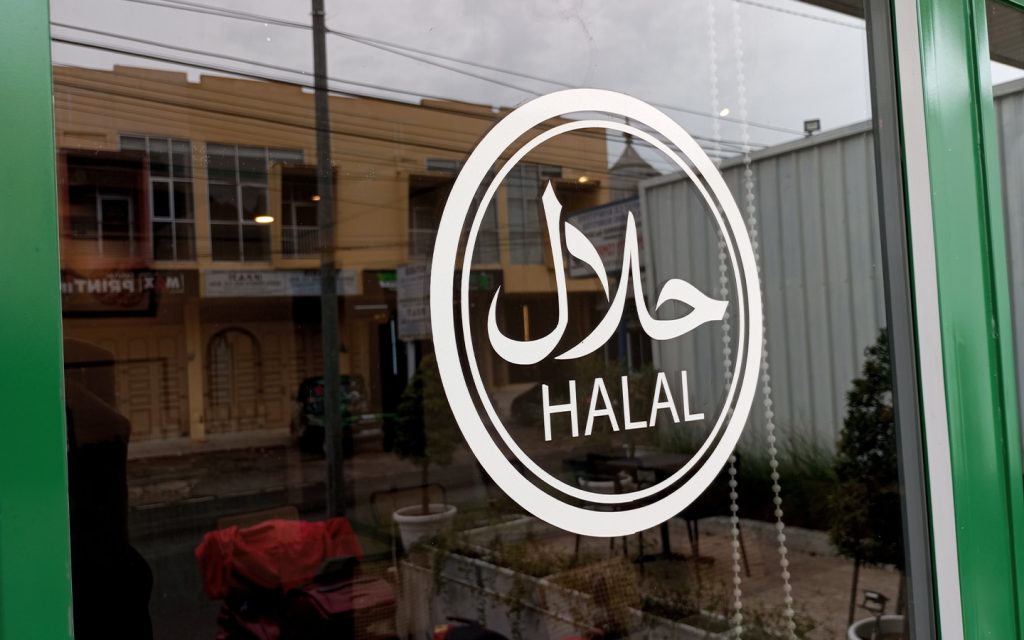
Glenn McCartney is optimistic that hurdles can be overcome. An associate professor in integrated resort and tourism management at the University of Macau, he tells Macao News that “We’re not just all casinos” and suggests “You have to elevate that perception in people’s minds.”
While conceding that “the food and drink, the dining options, really have to increase” for Muslims, he says Macao can offer plenty of “sightseeing and exploring and all the other things that are at the core of tourism,” noting that they are foremost among “the motives of travel.”
Reza Abbasi, who was born and raised in Iran and has a PhD in Hotel and Tourism Management, also believes Macao can make a case. The academic, who teaches a course entitled “All you need to know about Middle Eastern culture!” at the University of Hong Kong’s school of continuing education, suggests that Macao should “rebrand its image…and show other aspects of tourism offerings,” emphasizing that “gambling and casinos are not the only aspect we have.”
To attract Muslim visitors, he advises hotels to provide “a separate clean room for prayer, prayer mats, and some directions that lead to it,” adding “Both the hardware and the software should be worked on – not only the food should be Muslim-friendly, the experience should be Muslim-friendly too.” That would include the building of more family-friendly attractions outside of the casino-resorts. Abbasi also advocates for a comprehensive database for Muslim visitors with all necessary information. He noted that “In Islam, we have different sub-religious groups” and that certifying halal food can be complex. As he put it, “it’s more complicated than that, and it involves details.”
[See more: Where to get halal food in Macao]
Macao certainly cannot be faulted for pursuing the Middle Eastern tourist market or any other potentially lucrative source of visitors. Besides casinos, tourism is the mainstay of Macao’s economy. Historically, the city has heavily relied on mainland Chinese visitors, who have constituted 97 percent of arrivals. However, with the mainland economy facing potential stagnation and travellers opting for shorter trips or nearby destinations like Shenzhen, this reliance is risky. Western tourists, meanwhile, are challenged by geopolitical tensions and travel distances. That makes it essential for the city to find new sources of visitors.
To be sure, travellers from Muslim-majority countries like Indonesia and Malaysia already form a notable portion of Macao’s overseas visitors, ranking third and sixth respectively among major international markets as of December 2024. But many visitors from the former are in Macao to see friends and family (Indonesian workers form a large part of the migrant population of Macao), and while the revenue these short-haul Muslim visitors bring is welcome, it’s the affluent, long-haul Muslim travelers from the Gulf Cooperation Council (GCC) countries who possess significant spending power.
Promoting Macao in Muslim travel markets
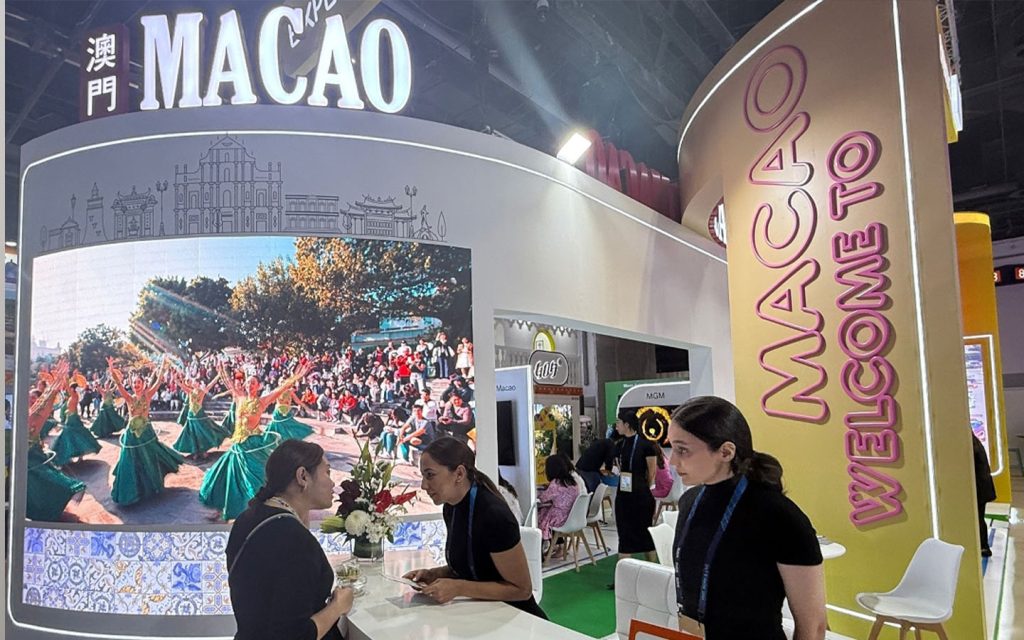
Recognising the desirability of reaching such a market, the director of the Macao Government Tourism Office (MGTO), Maria Helena de Senna Fernandes, has stated the need to step up efforts.
“Before the pandemic, most of our tourists came from mainland China. We weren’t used to receiving large numbers of Muslim tourists, but we see their growing presence not just internationally but also within the mainland Chinese Muslim community. We need to address this,” she said at the PATA Annual Summit last year.
Macao’s government has already been conducting industry training on serving Muslim tourists and promoting Macao in the Middle Eastern market. Delegations have visited the region, encouraging investment and hosting MICE events. These efforts have sparked some early interest.
The MGTO also participated at the recent Arabian Travel Market in Dubai and there are ongoing efforts to encourage Emirates to launch a direct Dubai-Macao route. At the 13th International Travel Expo (MITE), the MGTO emphasised making Macao more accommodating, including increasing halal food options and enhancing hotel facilities. The Halal Horizons Pavilion was also launched at MITE, showcasing halal businesses.
[See more: Macao revealed: A guide for Muslim explorers]
But if Macao wants to make a determined play for the Muslim market, long term commitment is needed. Abbasi concedes, “It’s difficult to know…I’m not going to say it’s easy and it’s going to take a little time, but it’s doable if they provide the services and infrastructure that is needed, and also work on Macao’s branding.”
Ree, the Muslim student, simply hopes for a “clear guide on tourist attractions that are more suited to me and that makes it so I don’t have to go out of my way to stick to my religious practices.”
Whether Macao can successfully evolve into a truly Muslim-friendly destination remains to be seen, but with a bit of hard work, Abbasi says, “Maybe they would be able to reach that point.”
